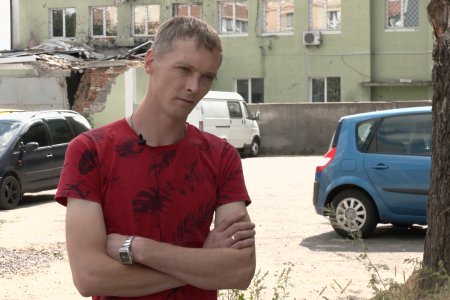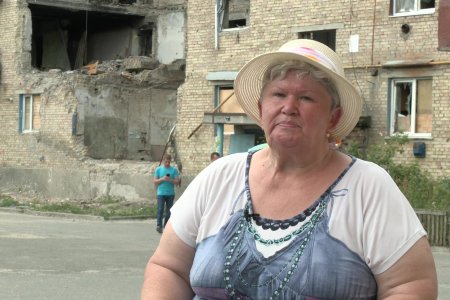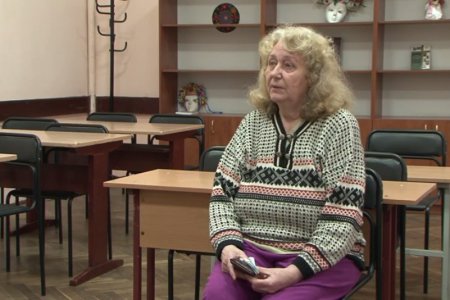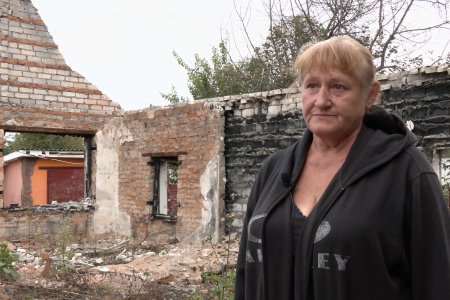Before the war, and now I work in ATB warehouses. I live with my husband and two children. Now, my husband is fighting in the Zaporizhzhia direction. The eldest daughter is 23 years old and works as a pharmacist; the youngest is 12, studying.
When it all started, we went to the road: people were leaving en masse, and many cars were driving. My sister moved with me from Kyiv, and we thought our village would be safe. We don’t have military units, and we thought [the Russians] wouldn’t come here. Even though many people were departing from here, we had no intention of leaving the house.
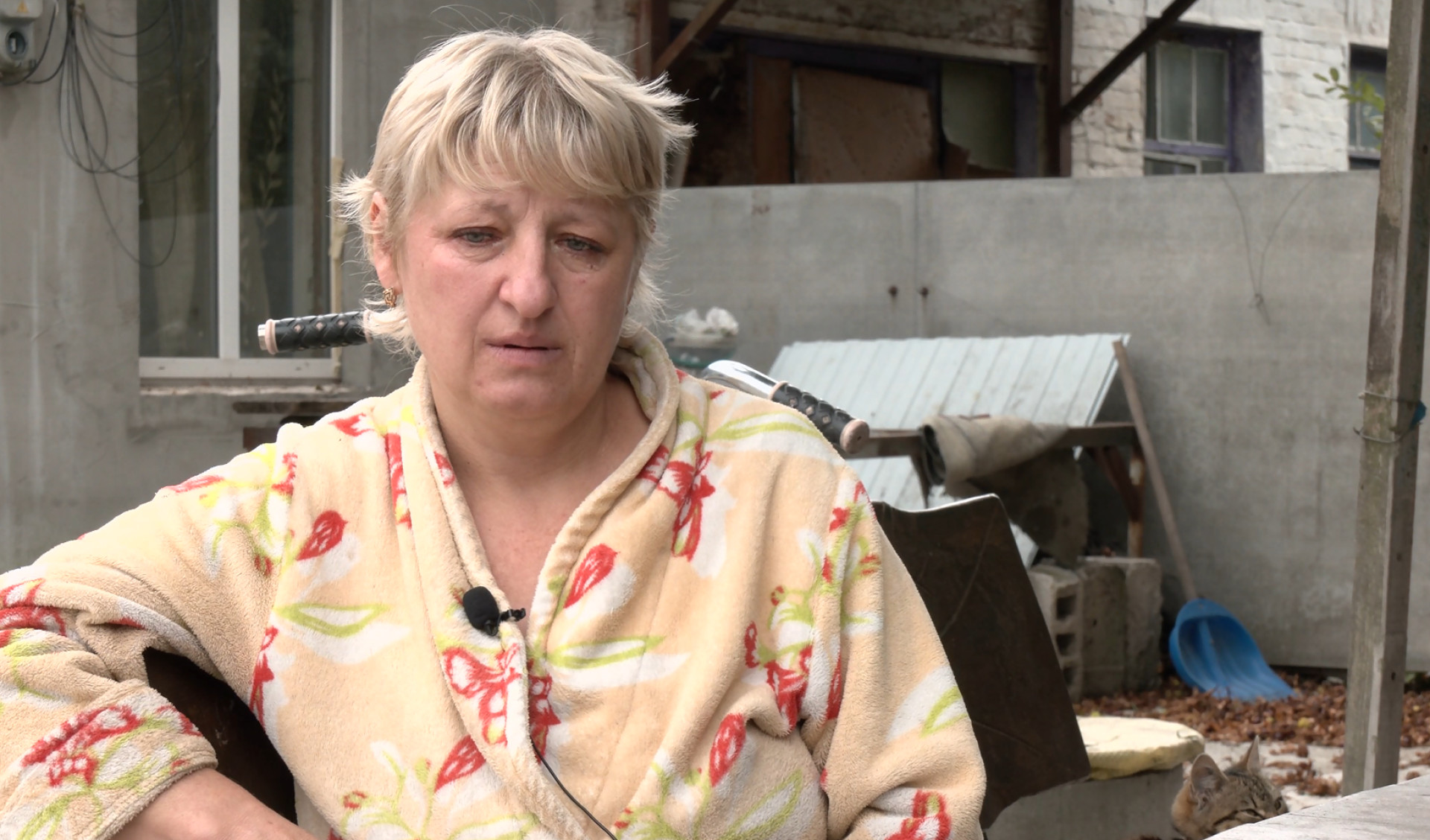
Then I went to work, the warning was announced, and we were all told to go home. It seems to have been on the 26th. We were hiding in the house. My sister, my husband’s sister, grandmother, and grandfather also came to us. They laid out mattresses in the corridor and lay on it. Later, a lot of Russian equipment came in, and there was an intense roar.
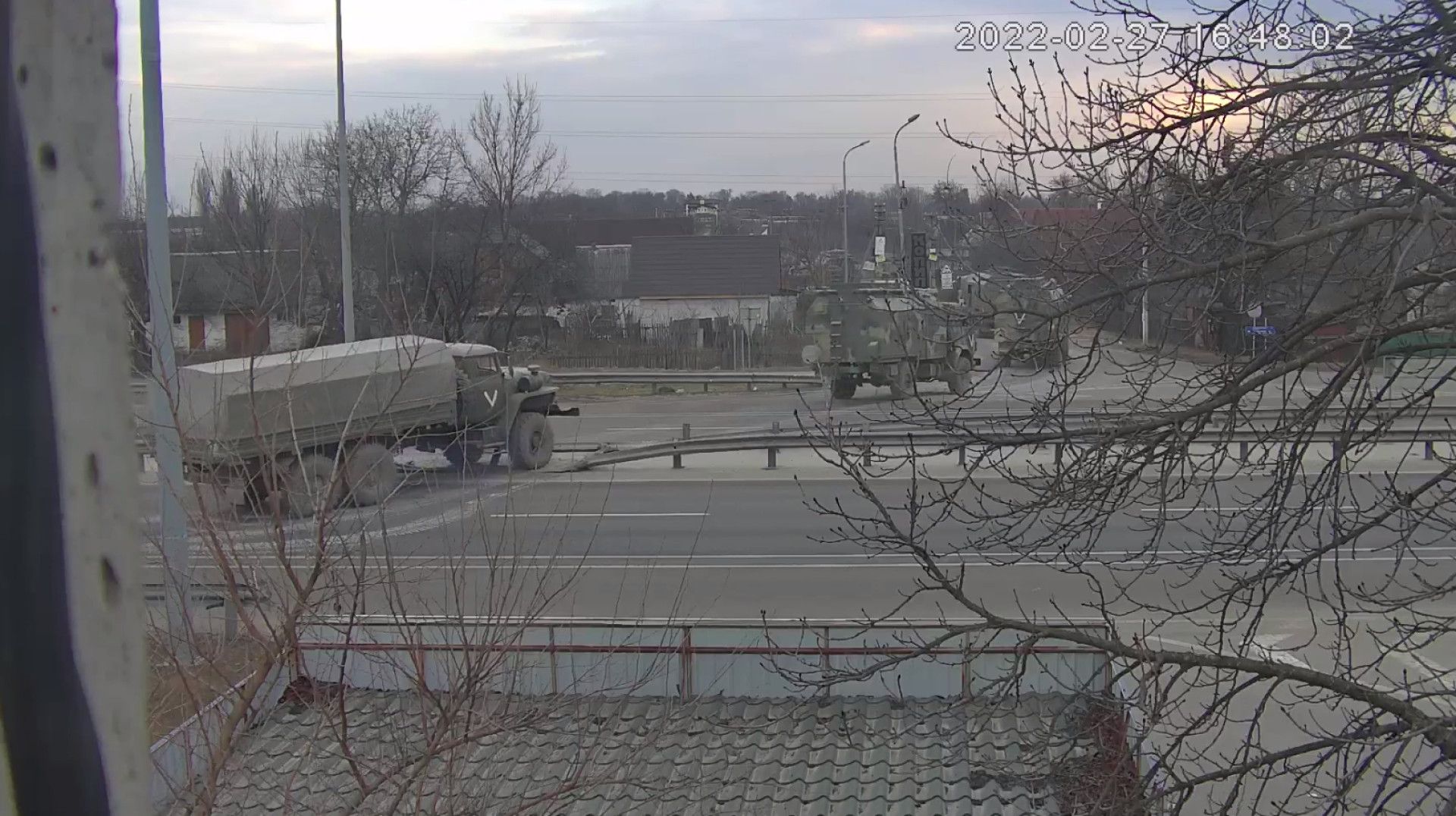
We lay down on the floor but ran out onto the road when they passed. We thought that they would move on, but they didn’t. They walked along the streets and robbed shops. When our guys appeared, they shot, but our guys managed to run away. Young people were allowed to walk with a white ribbon. They once approached my husband and said: “Uncle, give me a smoke!” He said that he had nothing: then there was nothing to smoke. The Russians rolled out cigarettes, but my husband didn’t take them. There were also planes flying and dropping bombs nearby.
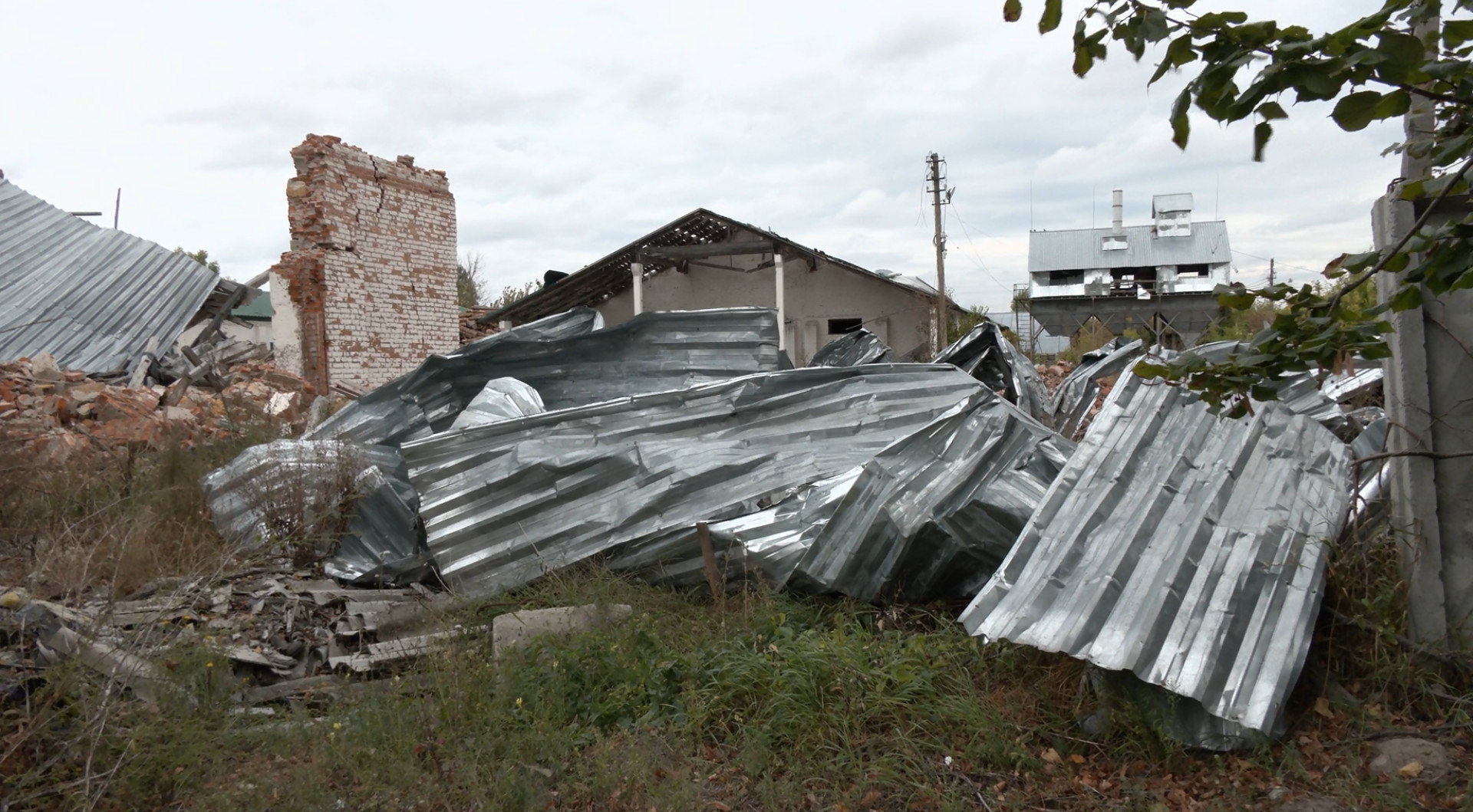
Then the Grads [rockets] flew, and something else was shooting there... The guys said that these were Grads. They passed back and forth through houses. And then it started... Shooting and Russians wandering around. We were having lunch that day, and planes flew over us again. My husband was lying down; I came and said: “They are flying!” And he: “Yes, these are ours.” It seemed to calm down. Then, such an explosion! One, another. Everything started to fall apart.
I was thrown several meters away, and we moved into the corridor and covered the children with blankets. The sensations were terrible: everything in the house seemed to rise, shake, and fall. Everything around was falling, and the light was somehow strange. In the end, the walls were damaged, and the roof started leaking. My husband patched it up a little while he was home.
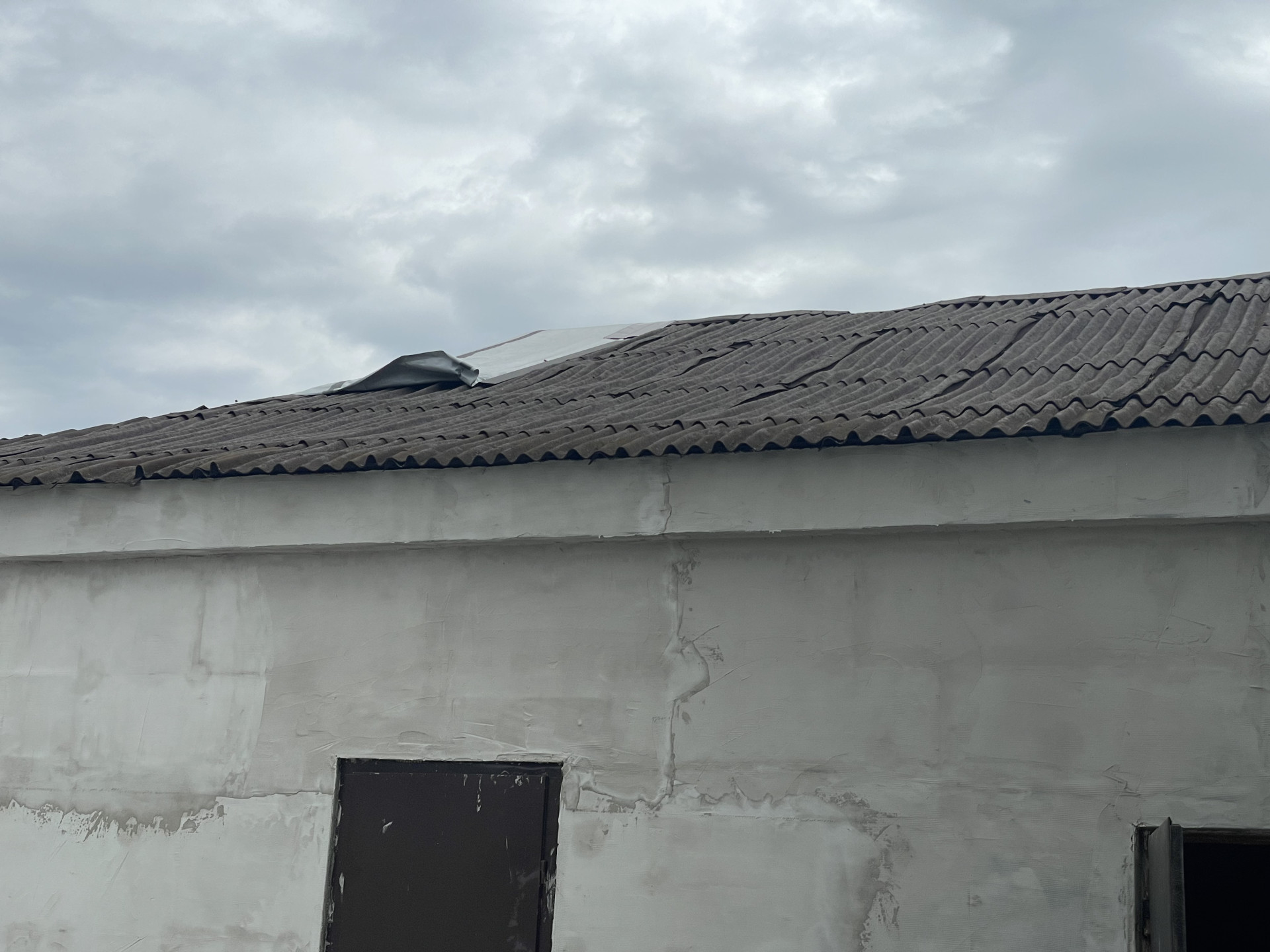
When the explosion happened, the children and I were confused: semi-naked and barefoot, we ran to the cellar. We ran up to it, but it was destroyed. Then people from the neighboring house started calling us: “Run to us!” And we ran.
There is a two-story house there, and we lived with them. Then we heard that they had given us a [green] corridor. We had a car but no gas. And then my sister’s husband somehow got here from Kyiv from the other side of the village, and that’s how we left. He arrived by car, crossed the field, and parked the car. We sat in the car: two older and two smaller ones in the trunk, the grandmother, grandfather, and us in the car. It was the 6 March, around four o’clock in the evening. We left for the Korostyshivsky district.
On 7 April, I returned to the village for the first time to look for my brother. We called people and asked. At first, everyone saw him, and then he disappeared. I called the head of our village, and he said: “They found a man on the highway, a guy, but I can’t identify him — come yourself.” That’s when we first came to the village. We were told he was in Makariv, in the morgue. We went there and identified him by his leg. He was thirty-seven years old... They found him on the second floor, killed, and covered with foam plastic. I don’t know who, how [killed him]... Nobody says anything. We asked and went everywhere. The second guy who was with him was also found even earlier. The brother, as the investigator said, was hit on the head with the butt of a machine gun. They hit him on the left side, and his brains were visible. We buried him on 12 April and then returned home. We need to work.
May they [Russians] burn in hell! They and their children! Together! Sorry.
